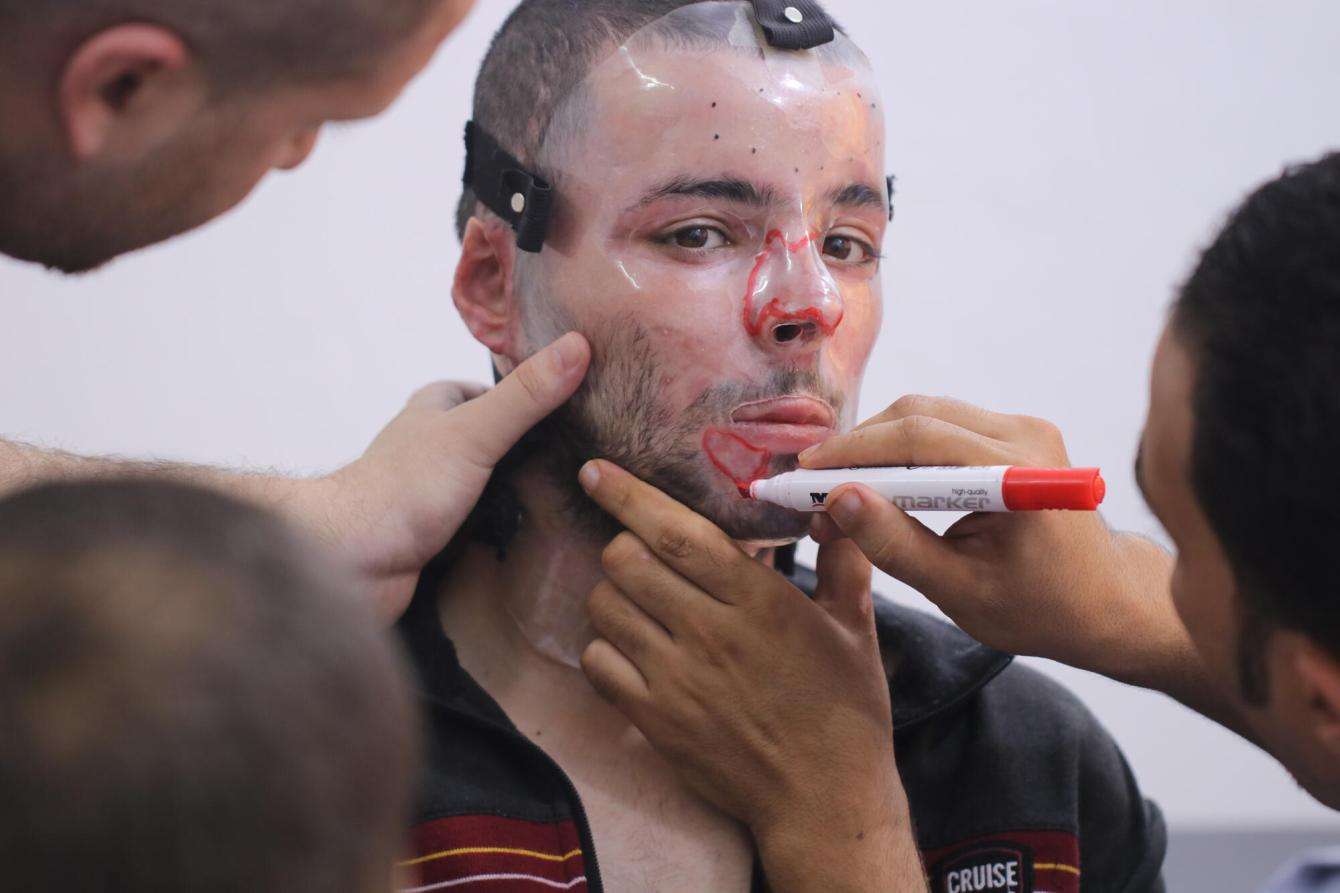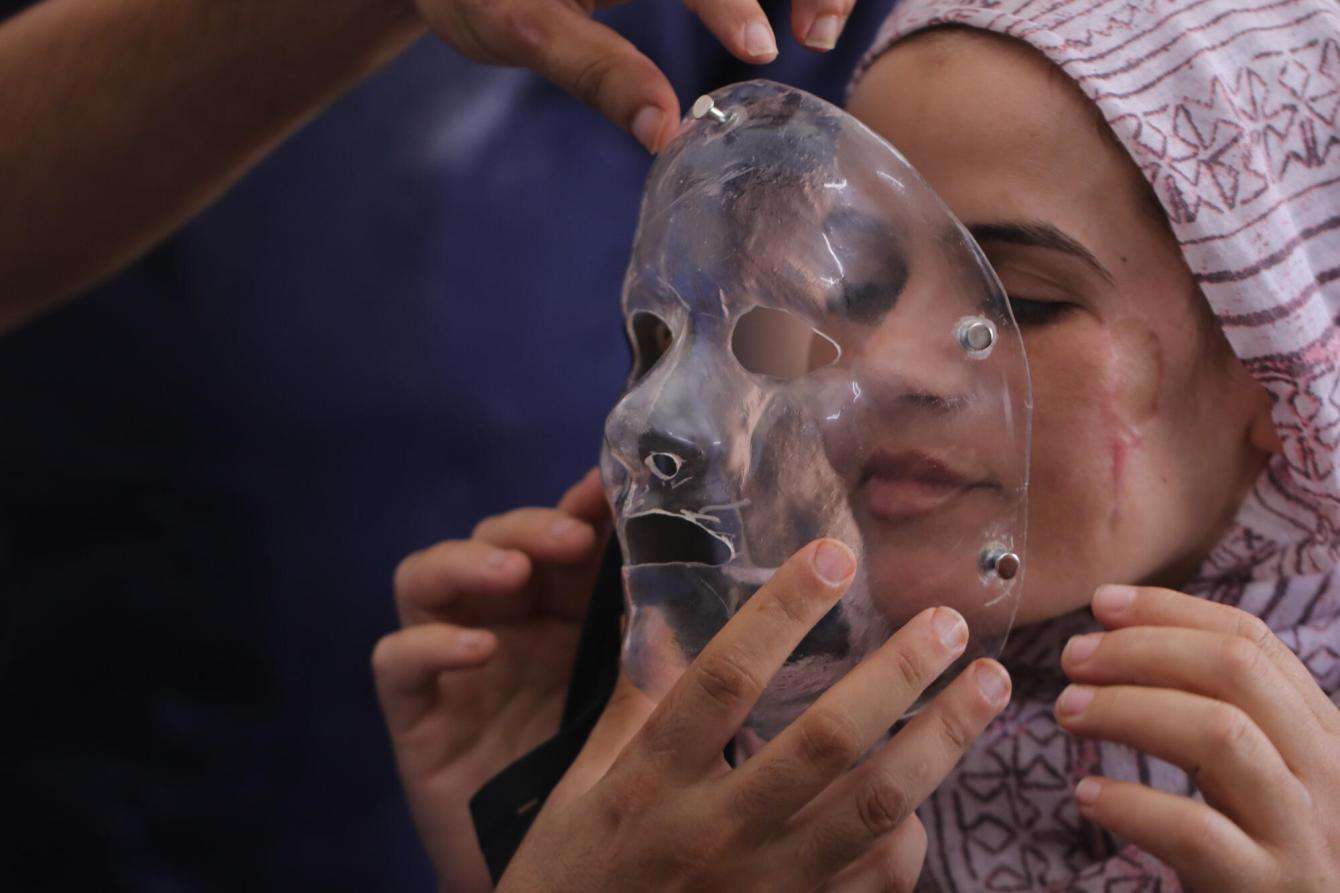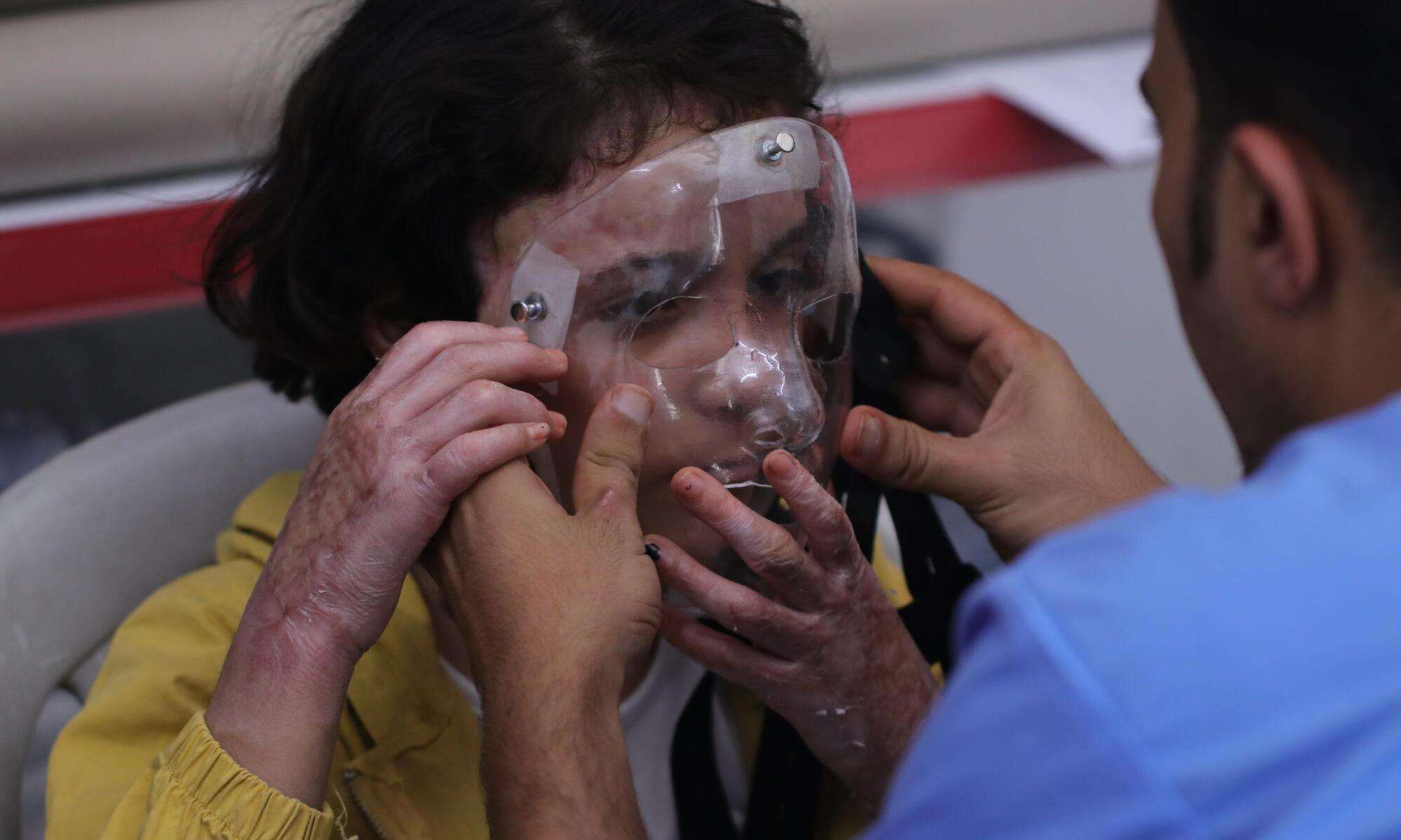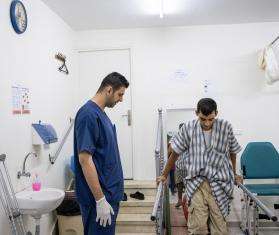Many children in Gaza, Palestine, have already experienced war in their young lives, often more than once. For those left with facial burns as a result of the violence, the scars—both physical and emotional—can last a lifetime.
Doctors Without Borders/Médecins Sans Frontières (MSF) teams provide specialized treatment for children suffering from facial burns at our hospital in Gaza. Using a 3D printer, we create a mould of the patient’s face, which is then used to produce a clear protective mask. These masks protect the skin and help scars heal without covering up the child’s face like bandages or dressings would.
Off-the-shelf prosthetics can be prohibitively expensive and are often one-size-fits-all. But no two patients are alike—from lifestyle to skin tone to aspirations, each has different needs when it comes to the prosthetic design that will benefit them most. Using digital imaging techniques and a combination of plastics, 3D printers fabricate modular prosthetics tailored to a patient’s anatomy and needs.
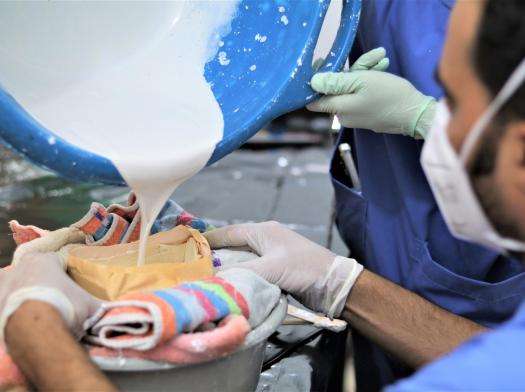
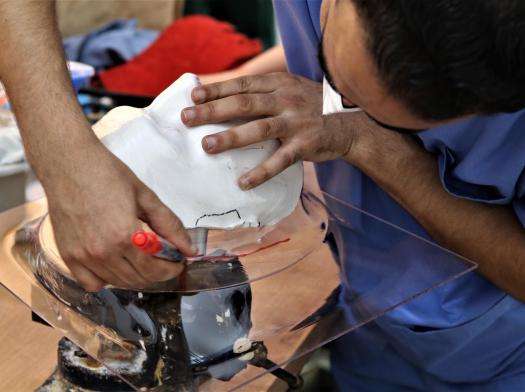
MSF physiotherapist Mohammed Ali Abed El Qakder Al Qatrawi makes a compressive face mask for a burn victim at MSF’s burn and trauma clinic in Gaza City. Palestine 2021 © Tetiana Gaviuk/MSF
Originally established in 2006 to treat victims of the Iraq war, MSF’s reconstructive surgery program now provides care to war-wounded patients from across the region
In pictures: Making 3D-printed masks

